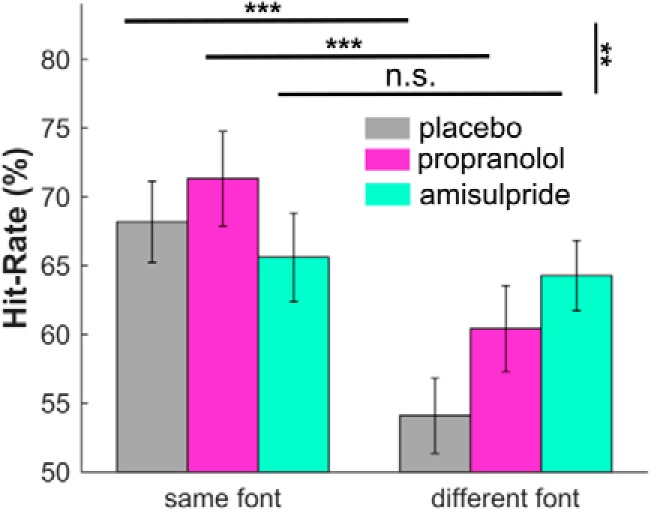Figure 2.

Blocking dopamine functioning reduces memory selectivity effect. Subjects generally show decreased recognition memory performance when words are probed in a different compared with the original font. However, this effect is only present in subjects under placebo and noradrenaline blockade (propranolol). Blocking of dopamine functioning (amisulpride) abolished the font switching effect, without impairing overall recognition performance. The findings indicate that this, neural gain-related memory selectivity bias is sensitive to dopamine but not noradrenaline function. Error bar: ± 1 S.E.M., ***p ≤ 0.001, **p < 0.01; n.s., p > 0.10.
